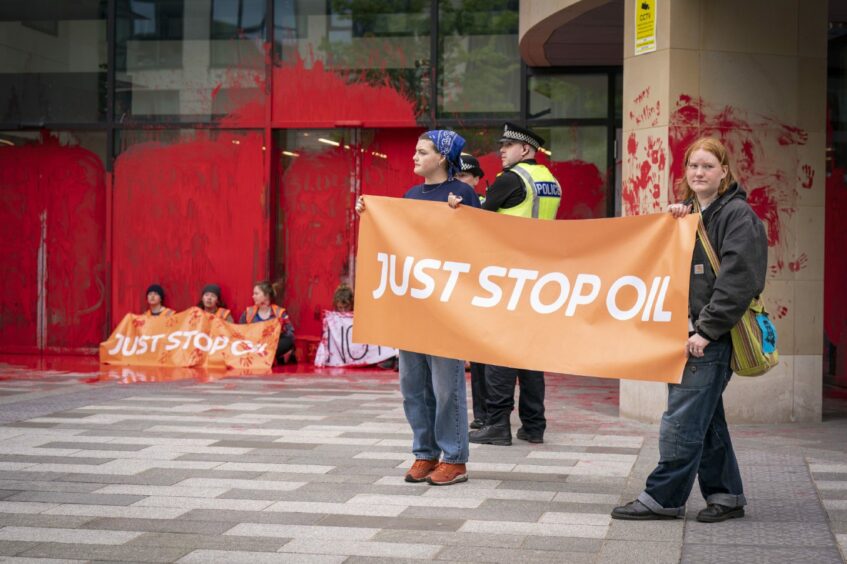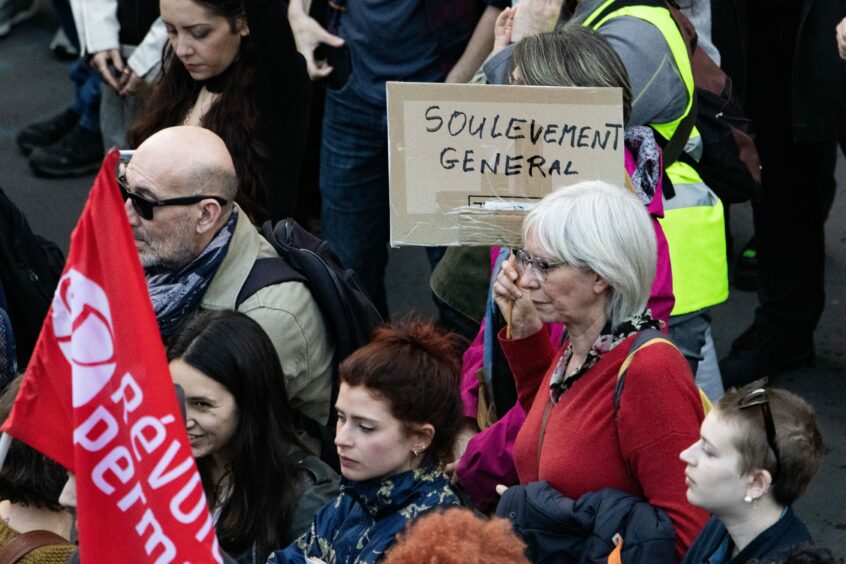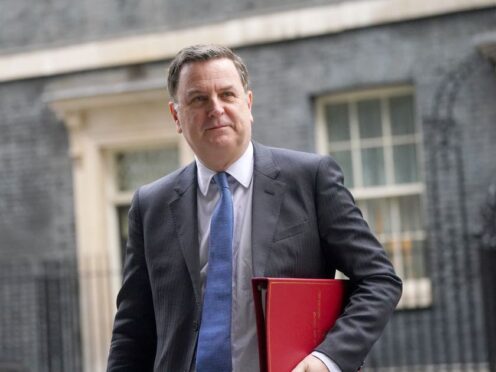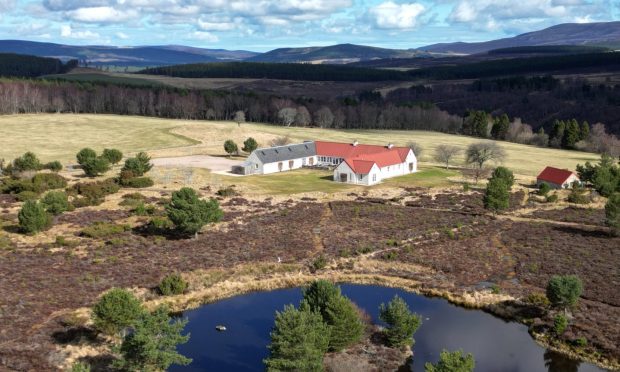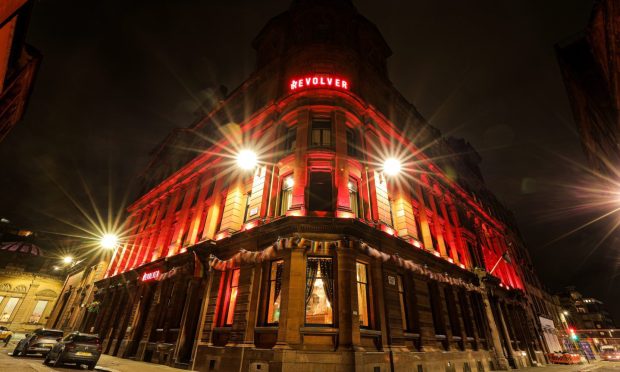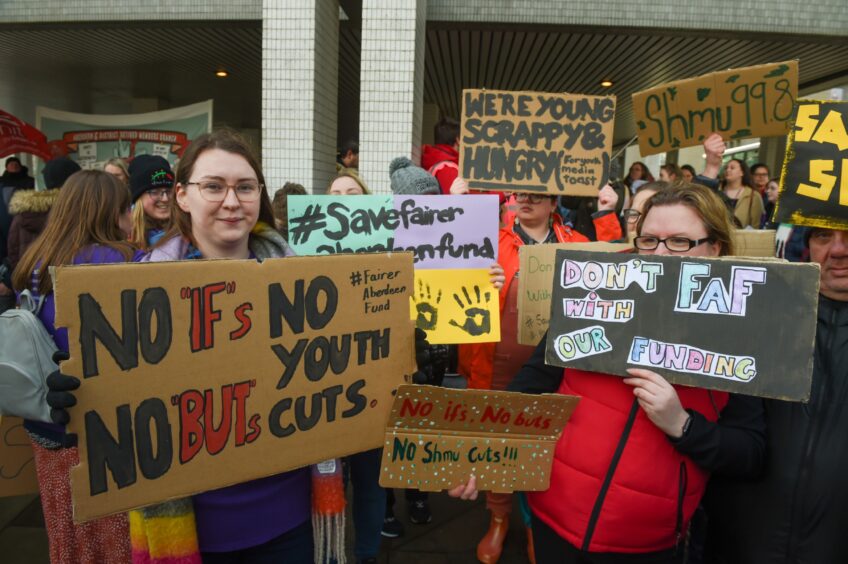
Years ago I took my children along to a rally – though my intent wasn’t to turn them into mini-campaigners.
I simply wanted them, young though they were, to see and hear for themselves what a rally is, and what it means to take a stand.
Right now globally and in the UK amid political turmoil and the cost-of-living crisis, it seems that protests are becoming more common.
From people turning out in droves to protest against planned pension reforms in France, to members of the public turning out in Aberdeen show their opposition to swimming pool and library closures.
But it’s not just protests that seem to be happening more frequently, other types of activism seems to be increasing.
For example, in recent years we have become accustomed to hearing about types of climate protests not only in the UK, but across Europe also – where paintings and well known buildings are often splashed with paint or other substances, with the event filmed and posted online.
But what is driving the increase, and are we seeing a generational shift? And while you shouldn’t have to shout to be heard – has such activism become a vital way to make sure our voices rise above the noise?
To find out more I spoke to Aberdeen University’s Dr Lynn Bennie, as well as Karen Barrett-Ayres who has been involved in campaigning against library closures in Aberdeen.
Dr Lynn Bennie, Aberdeen University
Reflecting on the factors which have led to an increase in activism, Dr Lynn Bennie, a reader in politics at Aberdeen University’s School of Social Science said: “When the economic climate is gloomy that does lead to dissatisfaction, it does lead to certain types of protest.
“It’s a reflection of broader inequalities and people genuinely struggling, and it’s maybe not just in the last year that we have had other types of activities – protest activity, movement activity, things like Black Lives Matter, feminist movements, lots of climate activism.
“The last few years, not just the last year, have been full of interesting examples of protest. People being involved in a certain type of political behaviour that is quite radical. Now in the end it is a small minority who will participate in that – you might get a very high-profile protest that gets a lot of media attention, but it’s still a very small minority of people.
“But yes there has been an uptick of that type of activity generally in recent years and I think that does come down to economic inequalities or perceived inequalities, also just a general level of dissatisfaction with politics.”
Action happens in waves
She added: “I think it goes back to this notion of when you have economic problems, economic distress over a long period of time you have local councils having to resort to closing libraries and local services. That can and does spark a reaction among normal people who might not in normal times be overly active.”
Last year the university set up a MSc in political activism and campaigning, for which Lynn is the programme co-ordinator. Among the topics the course looks at are the impact of such activities and the difference they make. They also look at methods of communication used in activism for getting the message out.
Lynn explained: “There’s maybe some arguments that this comes in waves – times of general discontentment and inequality. But what’s different about this generation is of course the importance of social media and modern forms of communication.
“A lot of climate activism is enabled by social media, it’s about spreading the message, the values involved – it’s an important organisational tool.”
Karen Barrett-Ayres, Ferryhill Library campaigner
Karen Barrett-Ayes was moved to take action when she heard her local library was closing.
She had started an online petition to try and stop the closure of Ferryhill Library. She had set the petition to close in 10 weeks, but when she discovered the library was due to close sooner she stepped up her campaign.
Karen, from the Ferryhill area of Aberdeen said: “It started from the fact I’m a mum, I thought there would be lots of parents in the same situation as me who would be devastated with the closure so I started reaching out to some other local campaigners.”
Along with another campaigner she organised a read-in at the library, and after that reached out to others petitioning against the closure of the other five libraries in the city. They then went on to form the Save Aberdeen Libraries group which campaigned against the closures of the six city libraries.
Though the closures ultimately did go ahead, the group is fighting on and is considering legal action.
Speaking about why it’s important to get involved, regardless of the outcome Karen said: “At least you can say you tried to make an effort to stop the closure. A lot of people I’ve spoken to said, ‘oh, it’s very sad.’ Then I’m saying, ‘If you think it’s sad, write to your councillor and make your views heard, you need to take action.’ I think it’s, it’s about taking action.”
“I think there is a general trend for people to join protests and things like that. I think it is mainly to do with the frustrations of not being heard.”
Protests around the world
According to a global protest tracker 135 significant economic anti-government protests have taken place since 2017.
The Carnegie Endowment for International Peace tracker also states that 23% of protests last more than three months.
One major moment in protest history happened just over 20 years ago in response to the impending war in Iraq. Millions of people took part in a series of protests on February 15, 2003, in over 600 cities worldwide.
The London protest is thought to be the largest single demonstration in the UK. The estimated attendance figures range from around 750,000 to over one million.
The event in Rome saw around 3 million take part and was listed in the Guinness Book of World Records as the largest anti-war rally in history.
